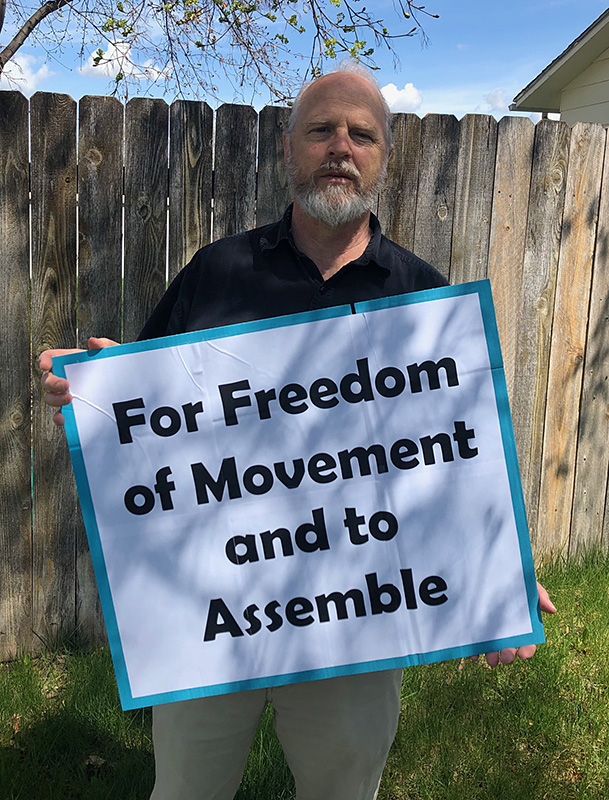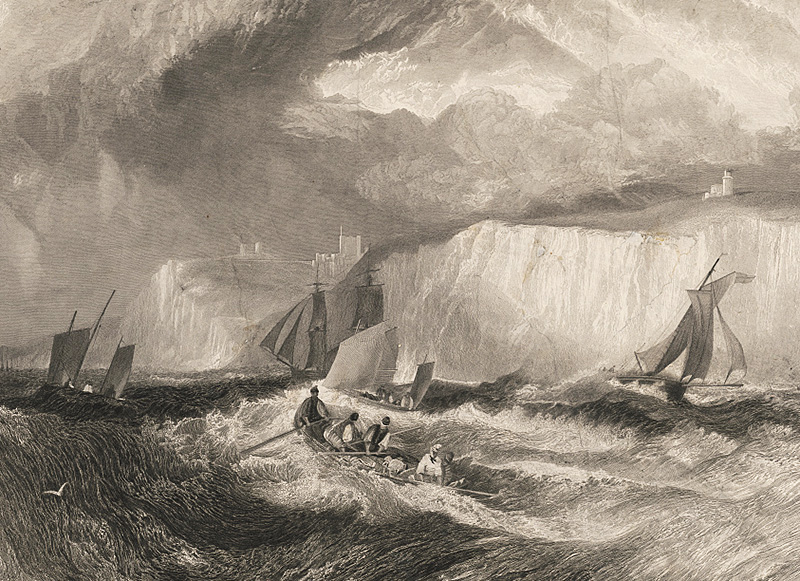Last week I was invited by a friend to participate in a Freedom Walk this Saturday. This has forced me to consider if I’m truly willing to stand up for what I profess. I agree with the need to stand up for our rights, but trying to publicly justify why I’m doing it to has taken me the full week of my free time to compose my thoughts. This post is about 1680 words long, so if you want to skip all my reasoning below, I’ll give you the bottom line right here up front:

More alarming to me than the threat of COVID-19, is the threat to our constitutional freedoms.
If you’re interested in my line of reasoning, read on.
First, how do I make sense of the numbers?
There are a number of mathematical models designed to predict the trajectory and seriousness of COVID-19. In researching these, I admit that some of them can be confusing for my simple mind to understand. So, let me try to narrow the problem down to the simplest terms. Lets start by saying that if I know that ten people have had this condition, and I know that one person has died (and these are the only numbers that I have), then I can use the equation that one out of every ten have died (or 10%) as the measure to base my predictions of what I might expect could happen going forward. Obviously this would be very bad.
But so far, we’ve got unknown numbers. To me it seems reasonable to assume that there is only a very small portion of the population that fall in the category of either being alarmed enough by their physical symptoms to go in and have a test done, or have taken up the offer of public testing. This leaves the denominator in the above equation as essentially unknown. We’re trying to come up with a statistical number for how great a threat this thing is, but we simply don’t know how many have had it. And it’s further complicated by the fact that many people could have had it, but they weren’t symptomatic. They didn’t get tested. They experienced it; it was mild enough that they dismissed it; they never went in and got tested; they haven’t been diagnosed; and there’s no way, therefore, to know that we ought to be including them in the denominator equation. What we do see is that as this thing has been further tested, the denominator has grown. So, where at first the prediction was that the death rate could be 4%, that number has been dropping as the denominator has grown. If you test a bunch of others and you find out that a hundred people have had it and only one person has died, then you know that the death rate that has occurred is 1%. But what if the number of people who’ve had it but dismissed it (and that number is significantly greater than anyone anticipated) turns the denominator into a thousand, and only one person has died? Well, then the death rate drops all the way down to .01%, and it’s no worse than typical seasonal flu.
It seems there is an abundance of ignorance about what the denominator ought to be. Furthermore, we have no assurance that whatever the denominator turns out to be that the history of what has happened is reliable as a predictor for what will happen. The amount of alarm over the personal threat this thing is to people is extraordinarily speculative.
But that just sets the stage. That’s the current cause of hysteria, but it’s the response to the hysteria that is particularly both unprecedented and very troubling.
Where is the greatest risk?
The way in which state and national government has responded in the United States (and national governments have responded in other countries) is more alarming to me than the condition that they’re responding to. To deny people the freedom of movement, to interfere with the ability to assemble, to compromise on rights that are spelled out in the Constitution and in the Bill of Rights is particularly alarming as a coercive step by government. We’re reacting to what has been called a “pandemic” as if it were a sufficient cause for suspending civil rights and constitutional rights.
Our country divides largely into two political camps, both of them are highly charged. We have the progressive or liberal or Democratic side (which is a hodgepodge of different sorts of people), on the one hand, and the conservative or the Republican or the traditionalist group of people, on the other hand (although, again, that’s a really difficult generalization to refer to). I claim no identity with either end of this spectrum as, depending on the specific issue in question, my opinion may vary and can change as my knowledge about things changes.
Here I would like to point to the group that aligns itself with a traditionalist view, those who are satisfied that President Trump is one of them, that he’s for small government and in protecting their constitutional rights. My question is, where was the outcry from this group when we all sat and watched as Trump set in motion the measures that have been undertaken that we now see threatening the very rights that we assume he was supposed to be protecting? My guess is that they were probably sitting in stunned silence (as was I) without even being aware of what was happening to these liberties right before our very eyes.
It is interesting to observe, in retrospect, that the greatest encroachments to our freedoms in recent history have happened under Republican presidents. The USA Patriot Act, that has practically suspended our 4th Amendment, happened under George W. Bush. For those who might remember, the Patriot Act got pushed through, in an unprecedented three days, through both House and Senate (introduced in the House 23rd Oct 2001, passed in the Senate on 24th Oct, signed by George Bush on Oct 26th 2001). Watch carefully as this pandemic will also be used as justification to rush through legislation that could further threaten our liberties. For example, Utah’s bill H.B. 3009 that was recently introduced (16 Apr, 2020) and has fortunately been stalled for the moment. In essence what H.B. 3009 has proposed is to canonize, or make official, the very things that have been imposed on the public these last several weeks. In other words, this implies that the measures that have been undertaken these last several weeks were done unconstitutionally (in both the state and the nation).
I don’t point out that these encroachments to our liberties have take place under Republican presidents to accuse the conservative party as responsible for loss of our rights, but rather to show how the circumstances, with Trump as president, have played out as opposed to what we might expect if it were under someone else. Consider, for example, if the lock-down had been attempted by Obama. Would the conservative traditionalists submitted so quickly? Or would we have seen push-back and outcry at the outset? Because it was Trump, in whom there is so much trust by conservatives, his actions have been more easily tolerated.
Who to blame is not the point…
In the present circumstances, it should not matter to anyone that you trust a President. It shouldn’t matter if people consider the activities are being done by someone they regard as benign. Everything that’s happening at the moment is setting a precedent for what we can expect to see happen again in similar circumstances.
It’s our reaction to this ill-defined, unproven, unknown viral threat that has interfered with commerce, shut down businesses, confined people to homes, resulted in police going about telling groups of people that they have to break up. The idea of social distancing and crowd control isolates people and puts everyone in an extraordinary, vulnerable, and disadvantageous position because of the inability to assemble freely and the inability to move and exercise your liberties that are guaranteed by the Constitution.
Whatever it is that we think we are submitting to for necessary circumstances right now, if this proves to be no more threatening than the common flu in any given flu season, we’re establishing the precedent that public health and welfare can be guarded by the abrogation of constitutional and civil rights, in order to protect people against what may be a relatively small threat in the end. We simply don’t know what that end will be, but we’re acting as if the presence of the mere threat (with its ill-defined contours) is enough to justify all of the extraordinary measures that are currently being taken.
Because the submission to the authority of the state is “popular” — that is, the approval of President Trump’s handling of this is greater than 50% — what that means is the majority of the American people, at present, are willing to allow totalitarian steps to be taken in order to guard against an ill-defined and currently unknown natural threat that exists. That ought to alarm us more than anything else that’s currently going on. Democracy and freedom is a very delicate flower. It can be destroyed by conspiring men that we have been warned about in revelation (that addresses, specifically, the government of the United States). It may be that, in all of this, President Trump has the best of intentions. It may be that he can be trusted. However, trusting one man with the ability to do it (simply because his political views align with your political views) sets a precedent which a later President (that you do not trust and whose political views are greatly at variance with your own) can rely upon and point back to and pose the question, “Why, if it’s wrong, did you submit before? Why, if you didn’t expect this to be the role for the government to occupy in circumstances that require dramatic steps to be taken in order to guard public health, why did you not raise a protest?”
(Many ideas expressed in this article were taken from the podcast “Whipsawed“)
